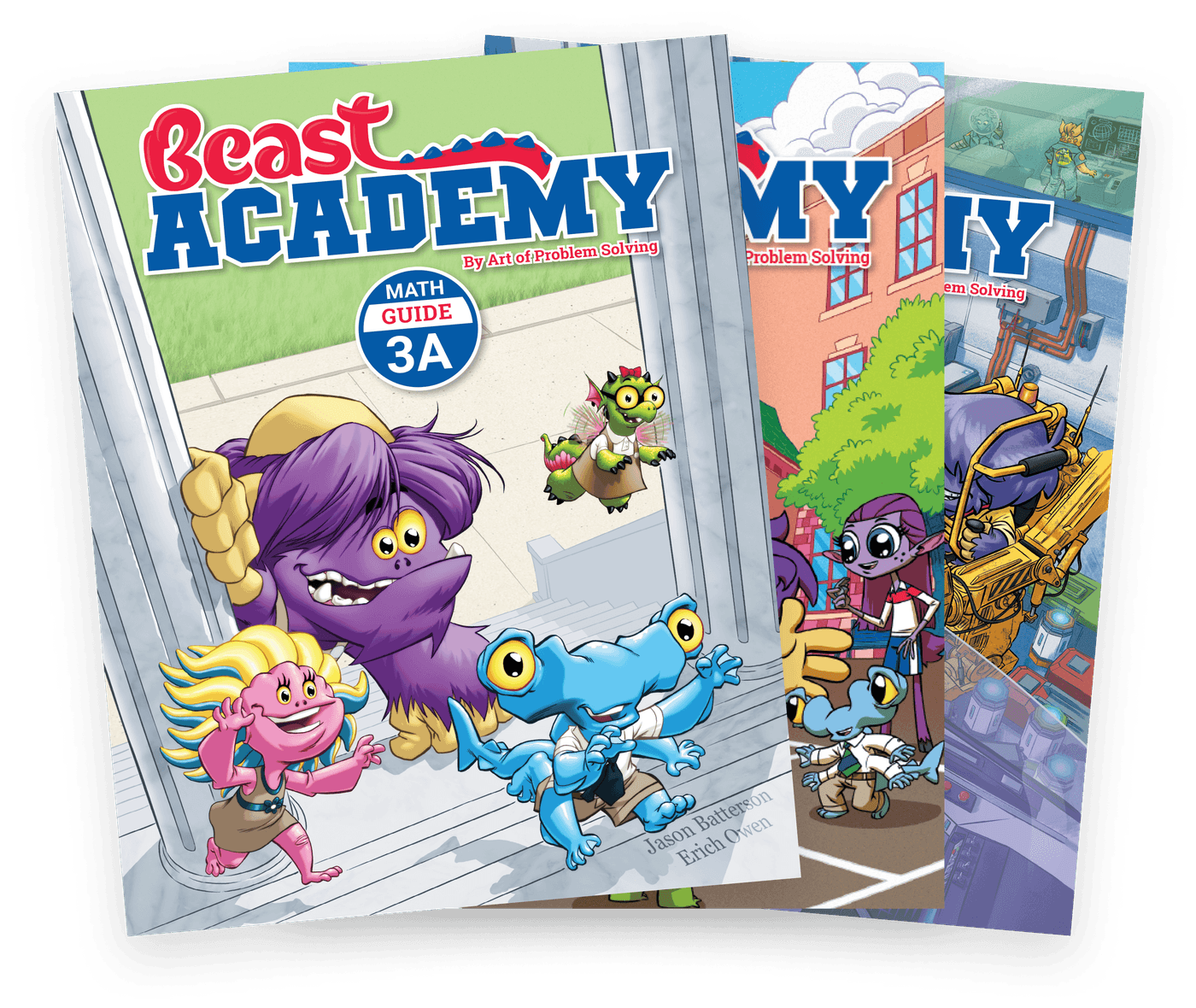Mail bag: What math curriculum should our tutor use?
You've hired the band, now the setlist
From a reader today: “I was wondering if you had any recommendations for a math curriculum that we could use to supplement our kiddo’s stuff at school. We have a [redacted university] student who will work with us—but I don’t have curriculum!”

If you plan to use a tutor who knows the math but is not an experienced educator (and therefore not trained on another curriculum), Beast Academy makes it easy to buy a full set of textbooks and workbooks for grade schoolers. Their curriculum roughly tracks a typical American school’s structure. They also include options to do more advanced work within each topic.
I’d recommend trying to work your way to be grade levels ahead in math if your kid is game. Don’t think of it as ambitious. Think of it as correcting for how Americans dish out math a bit reluctantly, as if they needed to save some for later.
But I’ll also pass on the warning I got from one reader who is an academic economist (and therefore, doesn’t give up math enrichment schemes lightly): You may find your kid is frustrated by having to sit through repetitive content in class. This family’s solution was to switch to using time at home for biology instead.
If you want to avoid duplicating school content, you might consider having your tutor follow the activity plans available for America’s local network of math circles. These are groups of instructors and kids who work on math topics that tend to be more advanced than those children usually see in school. The groups vary in their emphasis. Some are competition training grounds, whereas others are more about fostering curiosity about math. Activity plans for these groups are available online, and strong math tutors should be able to adapt to them easily for motivated students.
For those who don’t already have a tutor, but are considering one, here’s how we’ve thought about it. The background is that I have been my children’s primary math teacher since the toddler era. This year we’re beginning to work with an instructor since we’ve come to prioritize finding long-term mentors for our children. The hypothesis is that outside mentors stand a better chance helping our kids develop their interest in a subject area independently. We wanted someone who can charm the kids, so we picked an instructor to whom my elder child cottoned quickly in IRL math circle leader last year.
I’ve also always wanted to contact Pam Harris and Kim Montague, the hosts of the Math Is Figureoutable podcast, and see if they have a price point for online tutoring. (I haven’t because I have a hunch my kids aren’t ready for screen-only relationships yet.) Pam and Kim are veteran classroom teachers who now help math teachers get better at their jobs. I suspect they’d be a particularly strong choice for a gifted kid who also has learning barriers like ADHD or a rebellious streak that obscure their potential. Their contact is on Harris’s website.
If a human tutor isn’t in the cards, consider DuoLingo’s math course (previewed here). Their chubby green owl mascot and his animated entourage spent more hours with our kids than any tutor could at a typical budget. Their curriculum is not as complete as Beast Academy, but it is far less effortful for a parent. (There are also stuffies.) A green tutor looking for a simple solution could probably get a long way using Duo’s curriculum as the structure for their sessions, particularly for an advanced preschooler or an elementary schooler who is somewhat below or roughly on grade level.
The best argument for Duo is that their math course has a turnkey solution for spaced repetition, called the “Daily Refresh,” that gives your kid a reasonable shot at rooting the knowledge they earn in long-term memory. It is not signing on for the semester of tutoring that is the most metabolically costly part of learning. What’s even more demanding is ensuring sufficient use of the knowledge from that semester over time when it’s no longer novel, including on the days that no one feels like it. We couldn’t count on preschool to reinforce my kid’s knowledge of exponents or comparing fractions, but we could count on Duo.


